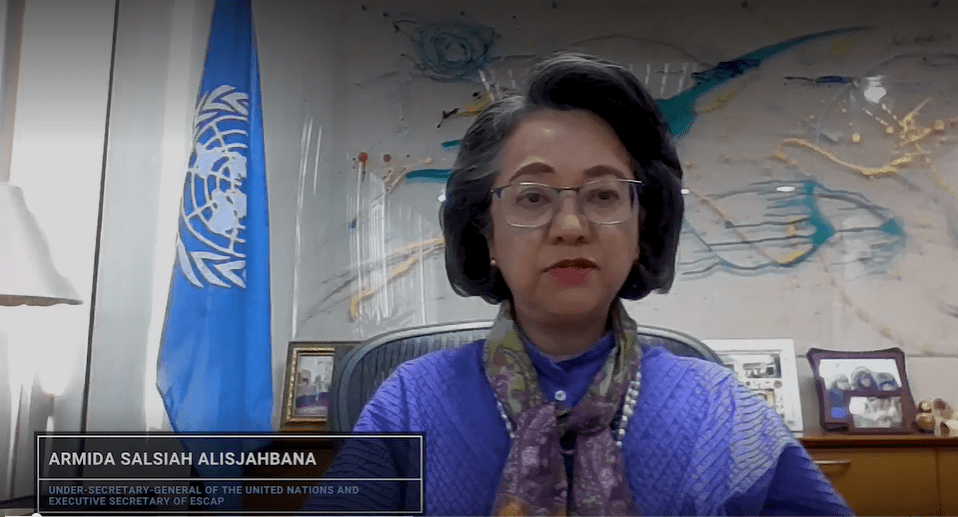 Dr. Thi Tam Dinh, Chair of the 16th Session of the CSAM Governing Council,
Dr. Thi Tam Dinh, Chair of the 16th Session of the CSAM Governing Council,
Distinguished members and observers of the Council,
On behalf of ESCAP, it is my great pleasure to welcome all of you to the Seventeenth Session of the Governing Council of the Centre for Sustainable Agricultural Mechanization (or CSAM).
Accelerating agricultural and rural development is vital to achieving the Sustainable Development Goals by 2030.
However, at the current juncture, agriculture across the world, including in the Asia-Pacific region, is facing the severe, twin challenges of the disruptive impacts of the COVID-19 pandemic, and the climate crisis.
The pandemic has not only stagnated progress towards combating hunger, but indeed has reversed some of the gains made in recent years, undermining the global community’s shared promise to leave no one behind.
The United Nations has estimated that between 720 million and 811 million people in the world faced hunger in 2020, an increase of as many as 161 million in just a year. Especially worrisome for us is the fact that more than half of the world’s undernourished – or 418 million people - are in Asia.
At the same time, climate change is fuelling both an increasing incidence and severity of extreme weather events and climate-related disasters. Changes in rainfall, temperature and humidity as well as outbreaks of pests and diseases are jeopardizing crop yields and production.
A recent IPCC report suggests that unless immediate action is taken, global temperature rise will hit the 1.5°C threshold within 20 years, and its severe impact on agriculture and food security needs no elaboration.
Against this backdrop, the United Nations convened in September the Food Systems Summit to launch bold new actions to deliver progress on all 17 Goals, each of which relies to some degree on healthier, more sustainable and equitable food systems.
Ladies and gentlemen,
Sustainable use of agricultural machinery has a key role in addressing the challenges facing food systems.
Mechanization can help sustain intensification of production, reduce food loss and waste, and feed a growing population with a more diversified and nutritious diet.
It can build the resilience of food systems to climate change and external shocks to keep supply chains stable during crises. When applied through an inclusive, equitable approach, mechanization also can help smallholder farmers increase their productivity and incomes while empowering elderly workers and women farmers.
And use of digital technologies and smart mechanization can make agriculture more attractive to the youth.
However, to fully realize the potential of mechanization, we need to build capacities of all segments of the farming community, we need innovation, and we need international and regional cooperation.
As a regional institution of ESCAP - with a mandate related to agriculture and food systems - CSAM has been working earnestly to promote sustainable agricultural mechanization in the Asia-Pacific region.
It has promoted resilient and climate-smart mechanization, and enabled knowledge exchange among member States for response and recovery from the impacts of COVID-19 in agriculture through sustainable mechanization.
Ladies and gentlemen,
The Governing Council is the most important institutional mechanism guiding CSAM’s work. Your review and advice are vital to ensuring that the Centre’s programmes are focused, impactful and meet the evolving needs of all member States in the region.
Over the past years, CSAM has benefited immensely from your support and enthusiastic collaboration.
I would like to take this opportunity to express my deepest appreciation to the Government of China, CSAM’s host country, for renewing its financial support for the Centre for another five years starting in 2021. I also thank other Governing Council members for their financial contributions.
I look forward to the continued guidance and support from the Governing Council to the work of CSAM. I wish you a very successful Governing Council meeting.
Thank you very much.
